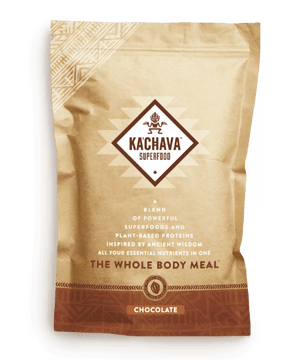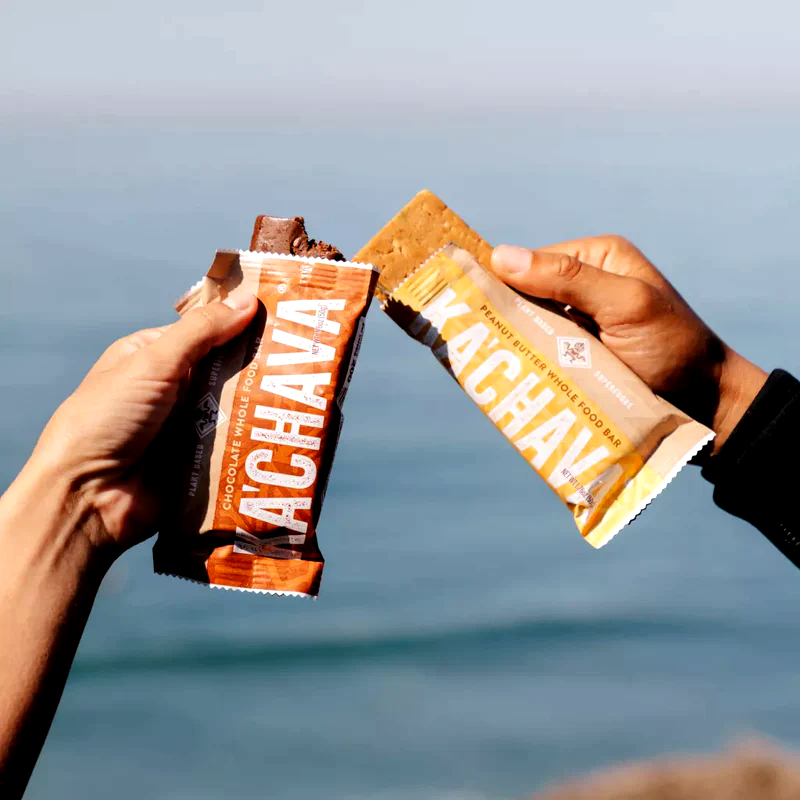Is Kachava Keto-Friendly? The Truth About the 4 Flavors!
 / Discover more like this here: https://stylevitally.com/is-kachava-keto-friendly/?feed_id=6637&_unique_id=66548b23b0225&utm_source=&utm_medium=ycfemb83&utm_campaign=FS%20Poster
/ Discover more like this here: https://stylevitally.com/is-kachava-keto-friendly/?feed_id=6637&_unique_id=66548b23b0225&utm_source=&utm_medium=ycfemb83&utm_campaign=FS%20Poster
Introduction
In pursuing a keto-friendly lifestyle, meticulous scrutiny of meal replacement options such as Ka'Chava is essential. Beyond surface-level claims, a detailed examination of its nutritional profile unveils a nuanced narrative. Ka'Chava boasts diverse flavors, including vanilla and matcha, adding an appealing dimension to its offerings. However, the true essence lies in the intricacies of its macronutrient composition. Each serving containing 25g of protein and 240 calories fulfills the need for a substantial meal replacement. Yet, the crux lies in managing its carbohydrate content, which could pose challenges for keto adherents striving to adhere to strict carb limits.
For individuals dedicated to the keto journey, comprehending Ka'Chava's carbohydrate profile is crucial. While the meal replacement shakes tantalize the taste buds with various flavors, including chocolate and chai, the real test lies in striking a balance between flavor and adherence to keto principles. Each shake packs 240 calories, a noteworthy 25g of protein, and a fiber content of 6g. However, the devil is in the details—the carbohydrate content. Despite including 85 superfoods, Ka'Chava's processing methods may result in nutrient loss, and its carbohydrate levels could challenge the stringent carb limits inherent in the keto diet.
Is Kachava Keto-Friendly? In short, No. Ka'Chava meal replacement shakes are not keto-friendly due to their relatively high carbohydrate content and macronutrient profile, which aligns differently from the requirements of a ketogenic diet.
What is Kachava?

Kachava It's a powder that replaces meals and has grown in popularity lately. It is advertised as a "superfood meal shake" that gives you all the vital nutrients your body requires in a simple-to-prepare beverage. Kachava may be something to consider if you're trying to lose weight or want an easy method to acquire all the necessary nutrients.
What, then, is in Kachava? This meal replacement powder contains superfoods like maca root, chlorella, and coconut and organic plant-based proteins like pea, chia, and quinoa. Because Kachava is made entirely of natural components and contains no dangerous additives, it is a safe and nutritious choice for anyone trying to enhance their overall health and well-being.
Still, that's not all! Additionally, Kachava is a rich source of vital minerals and vitamins that your body requires, such as B-complex vitamins and vitamins A, C, D, E, and K. It also has antioxidants, fiber, and good fats, all of which can strengthen your immune system, promote digestive health, and lessen inflammation.
What is the Keto Diet?
The goal of the low-carb, high-fat keto diet is to improve the body's ability to burn fat. When a person follows a ketogenic diet, their body goes into a metabolic state known as ketosis, where they burn fat instead of carbs for energy. The diet mainly consists of moderate protein, low carbohydrate intake (generally fewer than 50 grams daily), and high-fat foods like avocado, nuts, and oils.
Losing weight is one of the keto diet's key advantages. The body might lose weight quickly since it uses fat for energy, especially in the first few weeks of the diet. The ketogenic diet has also been demonstrated to lessen inflammation, regulate blood sugar, and improve concentration and mental clarity.
The keto diet is only ideal for some, even though it can be beneficial for weight loss and general health. Before adopting the diet, people with specific medical issues, such as pancreatic or liver illness, should speak with a healthcare provider. It's also critical to follow the diet appropriately and refrain from consuming excessive processed foods and unhealthy fats.
Is Kachava Keto-Friendly?
Acknowledging our prior assertion that Ka'Chava is not keto-friendly, we will now reaffirm this conclusion by conducting a detailed analysis of the nutritional content of its four flavors. Examining the macronutrient profiles and ingredient lists, we aim to provide further evidence supporting our initial assessment.
"The macronutrient profile information has been sourced from Kachava's official website."
Chocolate flavor

The exploration of Ka'Chava's keto-friendliness commences with its chocolate flavor, renowned for its rich taste and smooth consistency. The nutritional breakdown shows that the blend contains 62g (2 scoops) of total fat, 25g of protein, and 240 calories per serving. But the picture becomes less clear when we look at the number of carbohydrates that need to be more apparent.
There are 25g of total carbohydrates, 7g of dietary fiber, and 7g of total sugars (6g of added sugars). The chocolate variety doesn't fulfill the tight carbohydrate requirements of a ketogenic diet, with a net carb amount of 18g per serving.
Vanilla flavor

Moving on to the vanilla flavor of Ka'Chava, we taste a drink with a mild sweetness and a velvety mouthfeel. This taste has a nutrient-rich profile with 240 calories, 7g fat, and 25g protein per serving. A deeper look indicates that each dish has 24g of carbohydrates and 6g of dietary fiber. This yields a net carbohydrate content of 18g, higher than recommended for ketogenic diets.
Coconut acai flavor

The investigation on Ka'Chava's keto-friendliness also includes the coconut acai kind, renowned for its nutritious properties and exotic appeal. With 240 calories, 25g protein, and 8g fat per serving, each one promises to be nutrient-dense and fulfilling. However, the appeal wanes when we learn that each serving contains 21g of total carbohydrates, including 6g of added sugars. The coconut acai flavor does not fit the strict ketogenic dietary recommendations, as it has a net carb count of 15g.
Matcha flavor

Smooth and creamy protein powder, Matcha Kachava offers a unique blend of matcha flavors. Its flavor is noteworthy for striking a balance between being pleasantly sweet and not overbearing. A single serving (2 scoops) has the following nutritional information: 240kcal, 8g fat, 22g total carbs, 5g dietary fiber, and 25g protein. Even though matcha Kachava has more carbohydrates than is recommended for a ketogenic diet, it is still a valuable supplement for people who value a balanced diet because it is full of essential vitamins and minerals that promote general health.
Chai flavor

Our research culminates in the chai flavor of Ka'Chava, which is well-known for its tasteful fusion of spicy and sweet undertones. This tasty and nutritious alternative has 240 calories, 8g of fat, and 25g of protein in a 61g (two scoops) serving. Upon closer examination, each dish has 21g of total carbs and 4g of dietary fiber. This yields a net carbohydrate count of 17g, higher than what is advised for a ketogenic diet.
In summary, while Ka'Chava offers a nutrient-rich meal replacement, its protein and carb content may not align with strict keto guidelines, warranting consideration for those on ketogenic diets.
Assessing the Keto-Friendliness of Ka'Chava's Snack Bars

Ka'Chava presents two enticing snack bar options: Chocolate and Peanut Butter.
Let's investigate the nutritional profiles to ascertain their compatibility with a ketogenic diet.
Chocolate Snack Bar: The Chocolate Snack Bar offers a rich cocoa flavor with a soft, slightly chewy texture, boasting 19 grams of total carbohydrates and 13 grams of dietary fiber per serving. With a net carb count of 6 grams, it provides a moderate amount of protein and fiber yet may only partially align with strict ketogenic dietary guidelines due to its relatively higher net carb content.
Peanut Butter Snack Bar: On the other hand, the Peanut Butter Snack Bar presents a subtly sweet taste reminiscent of peanut butter cookie dough, containing 16 grams of total carbohydrates and 13 grams of dietary fiber per serving. With a net carb count of 3 grams, it offers a lower net carb content than the Chocolate variant, making it more suitable for individuals adhering to a ketogenic diet.
While both snack bars offer nutritional benefits such as high fiber content and protein, individuals following a very low-carb ketogenic diet may find the Peanut Butter Snack Bar more aligned with their dietary goals. However, individual carbohydrate tolerance may vary, and some individuals may still incorporate these bars into their ketogenic diet, depending on their overall carbohydrate intake for the day. Consulting with a healthcare provider or nutritionist for personalized dietary guidance is essential.
Common Questions About Ka'Chava Nutrition Shake
Is Kachava high in carbs?
Ka'Chava is relatively high in carbs, with 23 grams of total carbohydrates per serving. However, it also contains 9 grams of dietary fiber, which brings the net carb count down to 14 grams per serving.
Can I lose weight with KaChava?
Whether or not someone can lose weight with Ka'Chava depends on their overall diet and lifestyle. Ka'Chava can be part of a balanced diet and provide a source of nutrients and protein, which can help support weight loss efforts.
Is KaChava high in sugar?
Ka'Chava contains 6 grams of sugar per serving, which is relatively low compared to many other meal replacement or protein powders on the market. However, it is essential to note that the sugar content is not negligible, and people with specific dietary restrictions or health concerns should consider this.
Does KaChava spike insulin?
Ka'Chava is not likely to cause a significant spike in insulin levels due to its relatively low sugar content and the presence of dietary fiber and protein. However, individual responses to foods can vary, and people with specific medical conditions should consult their healthcare provider.
What are the side effects of KaChava?
The potential side effects of Ka'Chava are generally related to individual intolerances or allergies to the ingredients. Some people may experience digestive discomfort or other symptoms if they are sensitive to specific ingredients. As with any new food or supplement, starting with a small serving and gradually increasing intake while monitoring for adverse reactions is always a good idea.
is ka'chava diabetic friendly
Ka'Chava can be a part of a diabetic-friendly diet, as it contains relatively low sugar and net carb content. However, people with diabetes should always consult their healthcare provider before adding new food or supplements to their diet.
Conclusion
After reviewing Ka'Chava's nutritional profile, it is evident that, despite its increased carbohydrate content, which may make it less suitable for strict ketogenic diets, it is still a valuable food for people on balanced diets. Because of its comparatively low sugar and net carb levels, it can be a good choice for people watching their carb intake or managing diabetes.
Although not exclusively keto-friendly, Ka'Chava offers a nutrient-dense substitute with fiber, plant-based proteins, and vital vitamins and minerals. It is, nevertheless, best to speak with a healthcare provider before adding it to your diet. In the end, even though ka'Chava might not work for everyone's diet, it can still be a wholesome supplement for people looking for a quick way to substitute meals and a balanced diet.
Reference
(1) Kachava-Ingredients
https://www.kachava.com/pages/ingredients
https://stylevitally.com/is-kachava-keto-friendly/?feed_id=6637&_unique_id=66548b23b0225&utm_source=&utm_medium=ycfemb83&utm_campaign=FS%20Poster
Comments
Post a Comment